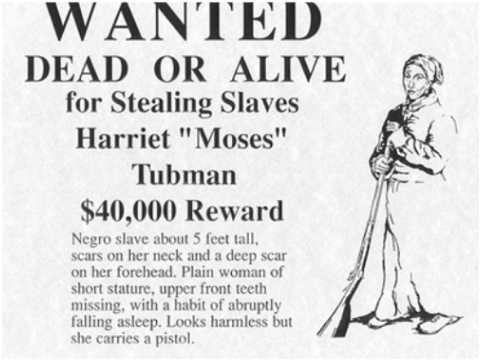The most northerly terminus of the Underground Railroad was the former Wesleyan Methodist Church in Ingersoll. Led by Quakers by the way of St. Thomas, slaves escaping bondage from their plantations from Virginia, Georgia, Louisiana and even as far as New Orleans, were smuggled into the attic of the Ingersoll Church during the night. Anti-slavery supporters would try to find work for them on neighbouring farms throughout Oxford County or would transport them to other areas to work, to enable them to safely reach their destinations.
A legendary conductor on the Underground Railroad was Harriet Ross Tubman. Known as the “Black Moses” of her people, Tubman was born into slavery around 1820 on Edward Brodess plantation in Maryland, Ohio. One of 9 children, her parents Harriet (Rit) Green and Benjamin Ross named her Araminta or “Minty” Ross. Harriett grew up with the harsh realities of bondage. From the young age of 5, she was hired out to care for a baby. At nighttime she had to constantly rock the baby, if he cried, Harriett would be whipped. She received such beatings that Harriet bore scars. As an adolescent, Harriet tried to protect another slave and suffered a head injury after an overseer throw a two-pound weight aimed for a slave she helped escape. This incident left Harriet with a scar in her forehead. She suffered from terrible headaches and endured sudden loss of consciousness throughout her life.
In 1849 Tubman escaped on her own foraging through the woods at night, she found shelter and was helped by free Blacks and Quakers. She eventually reached freedom in Philadelphia. There, Harriet met with the prominent abolitionist and civil rights activist William Still. Like him, she too became a conductor on the Underground Railroad. Tubman quickly gained respect among both the slaves and abolitionists. Abolitionist John Brown called her “General Tubman”.
Despite a $40,000 price on her head by a group of slave-owners, Harriett Tubman continued to lead escaping slaves to freedom. She brilliantly used disguises—sometimes posing as a deranged old man and at other times, as an old woman—to avoid suspicion when travelling in slave states. During her expeditions, Tubman carried sleeping powder to stop babies from crying and a pistol to prevent her charges from backing out once their journey began. However, Harriett never lost a passenger, although threatened, she never had to use her gun.


 RSS Feed
RSS Feed
